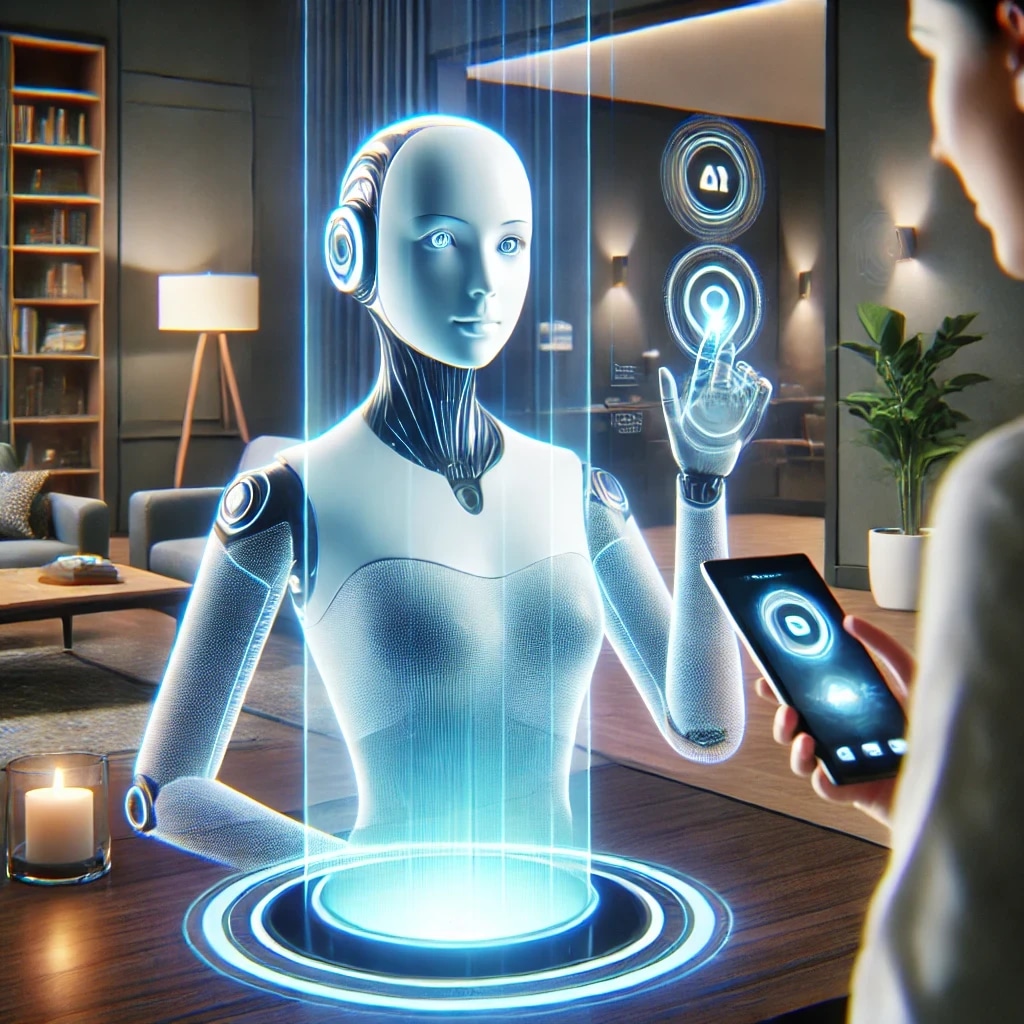
Add conversational agents to your web, mobile or telephony in minutes. Our realtime API delivers low latency, full configurability, and seamless scalability.
Building on conversational AI dialogues with realistic TTS
Imagine asking a virtual assistant for help and hearing a robotic and monotone response. You might think twice before asking for assistance next time.
Now, picture that same interaction with a natural voice—one that responds with appropriate tone, pacing, and even emotion, virtually indistinguishable from a human voice.
This shift in user experience is possible thanks to advancements in text to speech technology.
TTS complements conversational AI by bringing dialogues to life. From customer service chatbots to voice assistants, TTS bridges the gap between humans and machines, creating pleasant, authentic interactions. Tools like ElevenLabs are at the forefront of this innovation, offering customizable, realistic voices that bring conversational AI agents to life.
In this blog, we’ll explore how TTS enhances conversational AI, its impact across industries, and why realistic speech synthesis matters in creating 10/10 user experiences.

Add conversational agents to your web, mobile or telephony in minutes. Our realtime API delivers low latency, full configurability, and seamless scalability.

The effectiveness of conversational AI lies in its ability to replicate human interactions.
Whether it’s a virtual assistant guiding users through tasks or a customer service bot addressing shopper queries, natural and engaging dialogues create trust, understanding, and user satisfaction.
However, achieving this level of authentic interaction requires more than just functional technology—it demands human-like communication.
This is where realistic TTS comes into play.
TTS creates voices that resonate with users by mimicking the subtleties of human speech, such as tone shifts and emotional inflections. These lifelike voices transform AI systems from mechanical tools into conversational partners, improving engagement and accessibility.
Realistic TTS serves as the foundation of spoken dialogue in conversational AI, allowing machines to generate speech that feels authentic and relatable. Try Eleven v3, our most expressive text-to-speech model yet.
To get a better understanding of how TTS tools achieve this, let’s take a closer look at several key features of realistic text to speech:
Modern TTS solutions rely on natural language processing (NLP) and extensive machine learning to replicate human speech patterns. This process allows TTS tools to generate authentic and contextually appropriate responses.
For example, ElevenLabs’ TTS technology can adjust pacing, tone, and even emotion to match the content of the dialogue.
Effective communication often relies on displaying emotion. Realistic TTS processes subtle vocal cues, such as empathy in a customer service response or excitement in a product recommendation, enhancing the overall user experience.
TTS enables customization, allowing brands to develop unique voices that align with their identity. This not only reinforces branding but also creates a more immersive experience for users. ElevenLabs’ voice cloning capabilities make this personalization effortless.
In addition to enhancing user experience, TTS ensures that conversational AI is accessible to diverse audiences, including those with visual impairments or language barriers. Multilingual TTS further improves accessibility, enabling conversations in multiple languages with natural fluency.

Now that we’ve understood the features and benefits of realistic TTS, let’s take a closer look at how these tools can be integrated into conversational AI to foster authentic communication.
Virtual assistants like Siri, Alexa, and Google Assistant are all great examples of how TTS powers conversational AI. Realistic voices make these interactions authentic, whether users are asking for directions, setting reminders, or controlling smart home devices.
TTS improves customer service chatbots by enabling them to respond to queries with human-like empathy and contextual awareness. Multilingual TTS ensures global accessibility, while customizable voices help businesses maintain consistent branding across various interactions.
In healthcare, conversational AI powered by TTS assists patients with tasks like scheduling appointments, receiving medication reminders, or understanding medical information. Natural-sounding voices create a comforting and reliable experience, especially for more vulnerable patients.
TTS brings conversational AI into education and corporate training, making learning more interactive and accessible. Virtual tutors and training assistants use TTS to explain concepts, provide feedback, and guide learners through exercises like a real-life tutor would.
In the entertainment industry, TTS helps create dynamic, engaging characters for video games and interactive stories. By providing realistic voiceovers—even for NPCs—TTS enhances the emotional depth and immersion of gaming experiences.

It’s safe to say that ElevenLabs has become a key player in the TTS space, offering solutions that show us what’s possible in conversational AI.
Here’s what sets ElevenLabs apart:
Human-like speech synthesis: ElevenLabs’ TTS replicates the subtleties of human speech, including aspects like intonation, emotion, and even accent. These capabilities make conversational AI dialogues sound even more authentic.
Voice cloning and customization: Looking to customize TTS output even further? No problem. With ElevenLabs, users can clone their own voices to create unique personas tailored to specific characters, brands, or projects, enabling full personalization.
Multilingual options: ElevenLabs takes localization one step further. With support for 29+ languages, individuals can make their content accessible and inclusive for global audiences.
Adaptability: Whether it’s adjusting the tone for professional conversations or adding playfulness for entertainment, ElevenLabs easily adapts to any context.
These features empower businesses, educators, and creators to provide authentic conversational AI experiences that engage and resonate with users, regardless of their preferences and locations.
The potential for TTS in conversational AI is immense. As technology continues to evolve, we can expect even more advanced applications.
Firstly, future TTS software may be able to provide real-time emotional recognition. This means that speech output will be adapted based on user sentiment, with TTS tools adjusting tone, inflection, and emotion according to context.
It’s also likely that AI-powered voice cloning will allow for further customization, allowing individuals to generate flawless replicas of their own voices for various applications.
Finally, advanced natural language processing will likely diversify the number of languages TTS tools can handle and provide smoother and more natural translations.
These advancements will further blur the line between human and computer communication, fostering deeper trust and engagement between humans and conversational AI voice agents.

Add conversational agents to your web, mobile or telephony in minutes. Our realtime API delivers low latency, full configurability, and seamless scalability.
Text to speech technology is transforming conversational AI as we speak, one immersive interaction at a time. Realistic TTS is turning AI-powered tools into interactive, human-like partners for people from various walks of life.
TTS closes the gap between humans and machines by providing realistic, expressive dialogues and creating meaningful connections that drive engagement, accessibility, and, most importantly, trust.
When it comes to particular tools, realistic TTS solutions like ElevenLabs are leading the way in bringing conversational AI to life. As technology continues to advance, the opportunities to innovate and connect will only grow, making conversational AI an irreplaceable part of our daily lives.

Driving 9% uplift in user conversion with expressive, lifelike voices

AI is changing the way we shop.